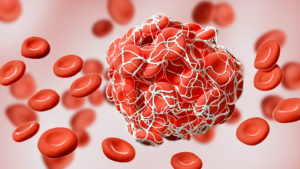What's On This Page?
ToggleWhen you think of your blood sugar numbers, and diabetes – either type 1 or 2 diabetes – certain complications come to mind. For example, those complications affecting one’s eyes, heart, and kidney come to mind most often. But most people never really think of the lungs having problems as a result of diabetes! That’s unfortunately a little-known fact. If you can’t breathe with comfort and ease, it doesn’t matter much what your blood sugar numbers are.
Diabetes (diagnosed or not) spawns a ton of oxidative stress throughout your body. Lung tissue gets affected by poor blood sugar dysregulation and all the free radicals killing the innocent cells just trying to ‘breathe’ if you know what I mean. The point of this entire article is to raise awareness for you that it is the slow burn (the oxidative processes) that inflame the body, and that is far worse than your blood sugar number. The clot formation is far worse than the numbers themselves too. Let’s talk about all this.
Capillaries and Clots
Lung tissue has an extensive network of blood vessels, especially the tiniest ones called capillaries. Capillaries allow blood cells carrying oxygen to march through their vessel walls, but slowly, only one cell at a time, kind of like soldiers marching one by one behind each other.
Capillaries are the most fragile because they are so thin. Your lungs are also made up of large amounts of connective tissue. Capillaries get destroyed when excessive glucose molecules attach to them and cause stiffening, so then they can’t bend anymore due to the formation of AGE or “Advanced Glycation End” products. A lot of inflammatory cytokines form too. It’s the same case in your eyes, heart, kidneys, and nerves, that’s why diabetic complications occur.
Data suggests that low concentrations of hydrogen peroxide are good and act as a cellular messenger in insulin signaling. In contrast, at high (uncontrolled) concentrations it is toxic, particularly in pancreatic cells, which are catalase-poor.
Recall from some of my recent articles that Catalase is a liver enzyme we make that has the ability to neutralize excess peroxide (toxic), turning it into water and oxygen (healthy).* Erythrocyte (red blood cell) catalase is the main regulator of hydrogen peroxide metabolism.

Any inherited or acquired deficiencies in erythrocyte catalase may cause increased hydrogen peroxide concentrations (harmful) which then results in damaging physiological effects.
Between all the AGE products and peroxide, a lot of problems ensue.
Remember, your erythrocytes tote oxygen around. This whole cascade leads to swelling and scar tissue which builds up in the air pockets and airways of your lung tissue.
Capillary Damage and Clots are Worse than High Blood Sugar Numbers
The capillary tissues fill up with inflammatory cells and fibrin. This process depletes your antioxidants like glutathione and SOD. More problems if you have a SNP that slows the production of either of those! It gets harder to breathe, you’re tired and you develop shortness of breath with little or no exertion. Forget about exercising now.
To boot, your new sedentary state causes weight gain and that taxes your heart, increasing cardiovascular complications from diabetes.
It can apparently be addressed, if only partially.

Eat Foods Rich in Minerals
In a July 2015 study, researchers tested the lung health of type 2 diabetic rodents demonstrating that if they gave the critters some chromium, zinc, and leucine, the animals’ lung health improved, like, a lot! They tried the nutrients separately and in combination. In all scenarios, the antioxidant status improved and lung inflammation was reduced. In some cases, it diminished entirely.
Chromium, zinc, and leucine didn’t just reduce blood sugar, they also protected those fragile capillaries and connective tissue from the cytokine storm, while improving antioxidant status. In other words, nutrients that reduce complications of diabetes are as important as those that reduce blood sugar.

In November 2015, new research focused on type 1 diabetes and mineral status. Scientists measured blood levels of chromium, zinc, and magnesium and they were reduced in all participants. In fact, the most poorly controlled diabetics seemed to have the worst deficiencies.
Minerals Reduce Blood Sugar Complications
The research confirms that chromium, zinc, and magnesium may be useful for people seeking to reduce complications. So many of you are focused on the blood sugar number, and you only judge your success by the numbers shown on the glucose machine.
Your blood sugar numbers don’t matter much.
I’m saying that it’s far more important to focus on capillaries, connective tissue, and inflammation chemicals. We know certain herbs and minerals support healthy nerves, capillaries, eyes, kidneys, and airways. This reduces complications. If you’re taking a supplement but not seeing the numbers go down, it may still be working.
You’d never even realize it if you’re just evaluating your progress with a blood glucose machine. If you have more interest in diabetes and would like to read my views on it, CLICK HERE to see my book, Diabetes Without Drugs, The 5-Step Plan to Control Blood Sugar and Prevent Diabetes Complications.
You may also be interested in these relarted articles:
Find Out How to Effortlessly Support Healthy Blood Sugar Levels Without Drugs
How Chile Relieves Diabetic Neuropathy and Nerve Pain
Coptis May Help MARCoNS, Hashi and Diabetes

Suzy Cohen, has been a licensed pharmacist for over 30 years and believes the best approach to chronic illness is a combination of natural medicine and conventional. She founded her own dietary supplement company specializing in custom-formulas, some of which have patents. With a special focus on functional medicine, thyroid health and drug nutrient depletion, Suzy is the author of several related books including Thyroid Healthy, Drug Muggers, Diabetes Without Drugs, and a nationally syndicated column.



